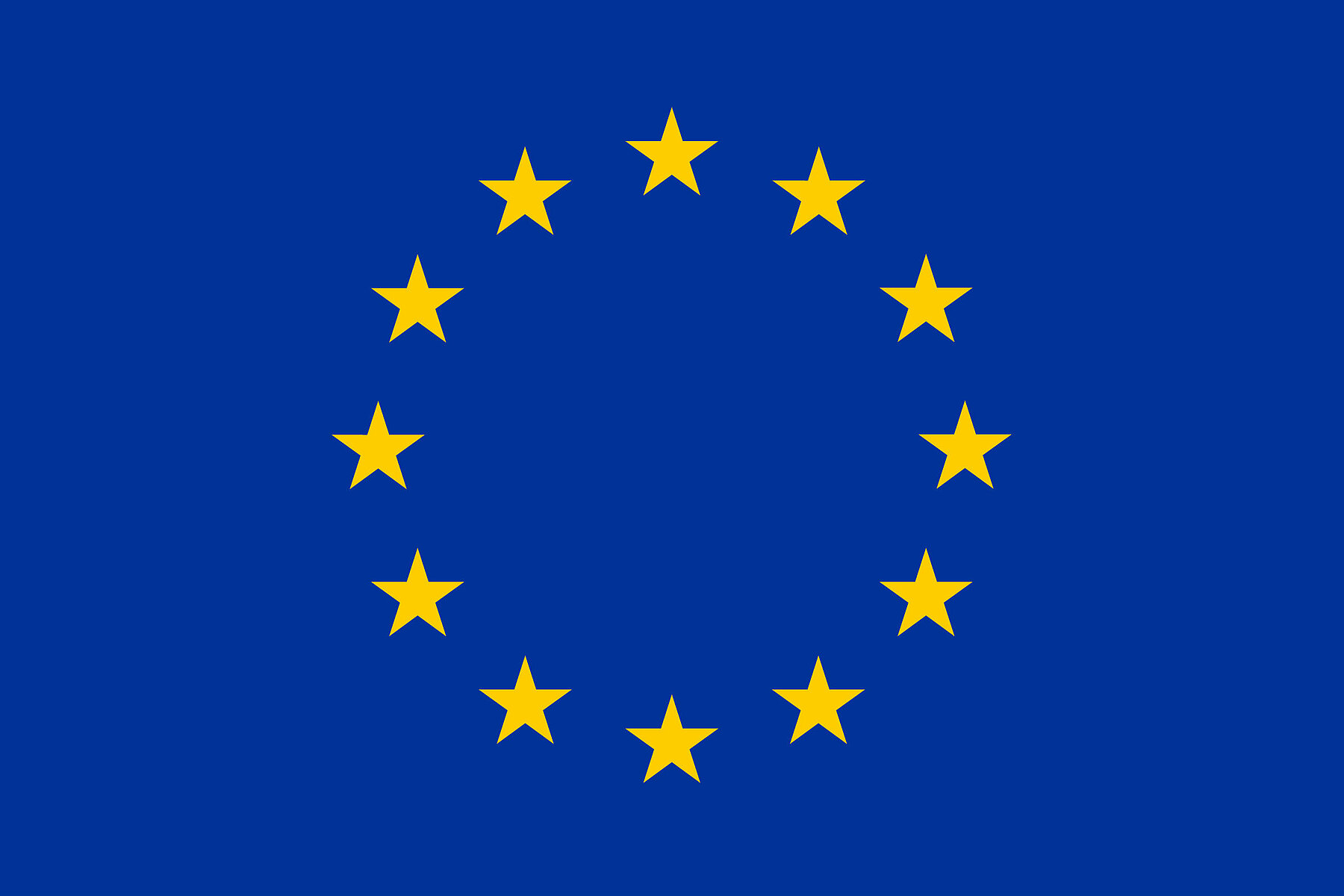
Climate-compatible shares
Sustainable Equity Strategy
Since the Paris Climate Agreement it is evident that investors, in their function as asset owners and capital providers, bear a high level of responsibility in combating climate change. Global equities are a core component of any investment portfolio. We are convinced that the greatest potential for greater sustainability and climate protection lies in this core global allocation.
The Salm-Salm Sustainable Equity Strategy was launched in 2016, immediately after the historic Paris Climate Agreement was signed. The equity fund aims to track global equity returns by investing in established companies that have recognized the need to adapt their business models and have a convincing climate and sustainability strategy. The selection process is based on the climate targets agreed in Paris.
The fund is suitable for all investors who want to adapt their core equity allocation to the new circumstances. Global equities with high balance sheet quality, low financing costs, solid dividend payments and a strong commitment to a <2degree Celsius world.
The result: for five years, the fund has successfully delivered a global equity market performance and met demanding climate and sustainability standards. If all companies operated as those allocated in the fund, the global warming may by less than 2.00 degrees Celsius.
Share Classes
Investment process
Economic optimization
Our investment strategy is based on an active-fundamental investment style. At its core is an equity valuation matrix developed by us, which is based on a multi-factor model that incorporates company-specific data, macroeconomic data and information on the sustainability and climate compatibility of companies.
Based on a hybrid bottom-up/top-down approach, we consider both classic value and growth factors and metrics, such as P/E ratio, KCF, KBV, return on equity, dividend yield, payout ratio, brand, business model, M&A activity, innovative strength, etc. Subsequently, these indicators are combined into an overall score.
Our goal is to ensure a global, systemic and largely sector-neutral return on shares, however without following the same regional distribution requirements that apply to global stock indices, such as the MSCI World.
At the same time, our goal is to ensure significant CO2 savings of up to 90%, risk-adjusted and without sacrificing global equity performance. This is possible through prudent allocation and fine-tuned selection of assets.
Selection factors
Selection criteria include:
Market capitalization, company size, volatility, credit quality, single stock and country risks, credit rating and critical review of rating agencies through internal rating process, business model, competitive situation, growth & cyclicality, management quality, innovation capability, balance sheet & capital structure, equity and debt, cash flows, degree of diversification of revenue sources, Use of funds (CapEx), "equity story", P/E absolute & relative to peers, combination of top-down market view and bottom-up analysis, regional & sectoral, primary market activity, liquidity (secondary market, diversification, relative attractiveness (sector & peers), themes & trends, business cycles, political environment, M&A activities and stock-specific features.
Sustainability Criteria
The responsible treatment of humans, nature and the environment is deeply anchored in our beliefs and our understanding of values. In 2012, this set of values was transparently set out for the first time in a sustainable investment process. Since then, we have also been a signatory to the PRI (Principles of Responsible Investment). The sustainability (ESG) concept is enormously complex and has evolved tremendously since the first definitions (Brundtland Report 1987). Thus, we also continuously adapt to new insights, measurement methods and necessities. The path to better sustainability and the active assumption of responsibility beyond the economic factor is our aspiration. From defining initial revenue thresholds, complete exclusions of controversial business practices and models, and a strict best-in-class approach, we have continued to refine our process. In 2016, we took the decisions of the Paris Climate Conference as an opportunity to integrate climate protection into our investment process. We are continuously developing the measurement and reduction of the carbon footprint across all our portfolios. In particular, we are proud to be able to measure the impact of our investments on global warming in degrees Celsius together with the Frankfurt-based company right.based on science. Global warming may be less than two degrees Celsius if all companies operated in the same way as those we allocate.
Climate optimization (footprint)
CO2 footprint Analysis: Since 2017/18, equity and convertible bond research has systematically collected data to determine the CO2 footprint. Since 2019, these are published on the factsheets and the website. In doing so, the CO2 footprints of the respective sustainable mutual funds are set in relation to those of their respective benchmarks.
With this approach, Salm-Salm & Partner essentially pursues three goals:
- The CO2 footprint is determined as a KPI (key performance indicator), which is to be reported on regular and comprehensive basis. The aim is to create the greatest possible publicity. Clients should be able to track the CO2 profile of both funds at any time.
- The CO2 footprint should be significantly lower than that of the respective benchmark in order to convince clients of the advantages of active investment strategies.
- The CO2 footprint should decrease continuously over time until it reaches a level that is no longer reducible or only reducible by applying additional strategies and measures.
Climate optimization (handprint < 2 degrees Celsius)
Future 1.5-degree Celsius climate path: At the point where the CO2 footprint ends - since it generally only provides information on historical emission values, we begin to measure these and manage our portfolio according to the (future) "Paris Climate Accord Compatibility".
The "XDC" model of our strategy partner right. based on science - a Frankfurt-based FinTech that won the German Sustainability Award - offers a forward-looking view of the climate profile of companies. The guiding question is what influence the company has on global warming (so-called "inside-out" perspective). Therefore, the model serves as a tool for the positive assessment of eligible companies.
The aim is to determine the "Paris compatibility" or the "2 degree Celsius compatibility" of eligible companies, for which an XDC, i.e. a measure expressed in degrees Celsius is determined instead of the common CO2 footprint, e.g. "1.6 degrees Celsius".
Along this internal target, we "cast" global equity strategies into a "transition portfolio":
- Stocks with large positive delta (i.e., with negative target divergence) are removed from the universe or the stock portfolio,
- Stocks with small positive delta are preferred - all else equal - in the construction process. The shares of companies with negative delta (i.e. with positive climate effect) and/or low positive delta are to increase from year to year ("ratchet mechanism").
- Stocks with a significantly negative delta are identified and, if possible (i.e. if financially suitable), acquired directly or at least considered on an ongoing basis.
In addition, we examine whether, and if so, to what extent, XDC may be integrated into existing risk, performance or other analysis models (and weighted accordingly).
The basis for all these steps is the existence of the largest possible overall universe of shares - a criterion that is generally present in the case of global equities.
Sustainability approach

Classified according to Article 9 SDFR
of the EU Disclosure Regulation

Classified according to Article 9 SDFR
Description of how sustainability risks are included in investment decisions and the result of the assessment of the expected impact of sustainability risks on returns.
As part of its investment process, the company includes all relevant financial risks in its investment decisions and evaluates them on an ongoing basis. In doing so, it also takes into account all relevant sustainability risks within the meaning of Regulation (EU) 2019/2088 of the European Parliament and of the Council of 27 November 2019 on sustainability-related disclosure requirements in the financial services sector ("hereinafter Disclosure Regulation") that may have a material adverse effect on the return of an investment.
Sustainability risk is defined as an environmental, social or governance event or condition, the occurrence of which could have a material adverse effect on the value of the investment. Sustainability risks can therefore lead to a significant deterioration in the financial profile, liquidity, profitability or reputation of the underlying investment. Unless sustainability risks are already taken into account in the investment valuation process, they may have a material adverse effect on the expected/estimated market price and/or liquidity of the investment and thus on the return of the fund. Sustainability risks can have a significant impact on all known risk types and contribute as a factor to the materiality of these risk types.
For more information on how sustainability risks are incorporated into the investment process and the potential magnitude of the impact of sustainability risks on returns, please refer to the respective asset manager's website for outsourced portfolio management mandates. Otherwise, you can find the information on the Universal-Investment website.
Description of environmental and/or social characteristics
Salm-Salm & Partner takes particular account of the aspect of climate protection in connection with the areas of environment, social affairs and corporate governance. In addition to this, Salm-Salm & Partner has developed an individual ESG sustainability rating profile in cooperation with its data providers based on a variety of criteria in line with leading guides in the German-speaking market. The following ESG areas are taken into account:
Environment (turnover thresholds):
- Nuclear energy (0%)
- Fossil energies (0%)
- High volume fracking (0%)
- Oil sands (0%)
- Animal testing (0%)
- Biocides (0%)
- Green genetic engineering (0%)
Social (revenue thresholds):
- Gambling (0%)
- Pornography (0%)
- Spirits/alcohol (10%)
- Tobacco products (0%)
- armaments (0%)
- outlawed weapons (0%)
- embryo research (0%)
Corporate governance (revenue thresholds):
- Exclusion of controversial business practices (corruption, bribery, accounting, tax, competition).
- Norm-based screening (ILO conventions, OECD guidelines for MNCs, UN Global Compact, SIPRI).
CO2 footprint has been collected for the fund for the first time since 2017. In addition, all investments in coal, gas and oil have been excluded since the introduction of the SSP Climate Change Policy. Since 2020, it has additionally been determined which climate impacts, along the Paris climate targets adopted by the United Nations in 2015, emanate from the fund, expressed in degrees Celsius, as a so-called "forward-looking" climate metric. If all companies were to operate in the same way as those allocated in the portfolio, global warming would be less than 2 degrees Celsius, according to the evaluation by right. based on science as of Feb. 16, 2021.
Do companies in which investments are made apply good corporate governance practices?
Directive 2013/34/EU of the European Parliament and of the Council sets out transparency obligations with regard to environmental, social and corporate governance aspects in the context of non-financial reporting. The fund invests exclusively in companies that demonstrate good corporate governance practices. Companies are expected to publish a corporate governance code in accordance with national legislation, in which they demonstrate at least sound management structures, a proper relationship with employees, employee compensation and tax compliance.
In order to assess good corporate governance, priority is first given to a so-called "best-in-class" analysis. Here, weightings of the top levels of ESG company ratings as well as industry-specific minimum ratings are defined as a threshold that may not be fallen short of.
Methods for assessing, measuring and monitoring environmental and/or social characteristics.
Salm-Salm & Partner works with a variety of research houses, including well-known market giants such as MSCI ESG and start-ups such as the Frankfurt-based Fintech right. based on science. Other external sources include Altert services from providers such as Bloomberg, Google and the Sustainable Business Institute (SBI).
In addition, the expansion of complementary, predominantly qualitative in-house analyses is being pushed. Currently, two analysts are collecting additional information, mainly based on publicly available platforms and information services (including Science Based Targets, Clean 200, Carbon Underground, Influence Map). Much of this internal analysis is based on climate-related data.
The ESG evaluation and rating system is an integral part of Salm-Salm & Partner's investment process.
The central criterion for the selection of individual securities is the credit quality of the companies. Due to the large number of non-rated credit ratings in the asset class of convertible bonds, Salm-Salm & Partner developed its own credit rating system at an early stage. This is classified by the capital management company Universal-Investment- Luxemburg S.A., as compliant with the Insurance Supervision Act (VAG).
In this way, Salm-Salm & Partner ensures that the credit quality (including balance sheet ratios, credit spreads and business risks) of all issuers that qualify for investment is analyzed and evaluated in depth. As part of the holistic company valuation, Salm-Salm & Partner performs a comprehensive equity analysis.
The sustainability analysis follows the evaluation of market capitalization, credit rating and volatility of relevant stocks and runs parallel to the evaluation of the companies' business models, balance sheet, capital structure as well as regional and sectoral distribution.
First, all companies are subjected to an exclusion screening in various business areas and practices. In the following step, a sustainability rating, the so-called "ESG Performance Score" is assigned.
For the further selection process, Salm-Salm & Partner only uses stocks that withstand the analyses and exclusion criteria and whose issuers can demonstrate an ESG Performance Score of at least 4. The scale ranges from 0 to 10.
Negative screening is based on the MSCI ESG online platform, while the evaluation of positive criteria is primarily based on the best-in-class rating system developed specifically for Salm-Salm & Partner.
The absolute best-in-class approach is based on the fact that the environmental and social challenges in the individual sectors as well as for companies and countries are very different.

Compatible with Finanko criteria
the Austrian Bishops' Conference and the Religious Communities of Austria

Compatible with Finanko criteria
The responsible handling of money is a self-evident obligation from the Gospel for the mission and credibility of the Catholic Church. An expression of this is the "Guideline on Ethical Investments" (FinAnKo) adopted by the Austrian Bishops' Conference in 2017.
"Guidelines for Ethical Investments" (FinAnKo). The criteria contained therein follow the proven triad of ecumenical-Christian ethics and are justice, peace and integrity of creation. This regulation is continuously reviewed and, if necessary, further developed.
Most recently, in 2019, a full phase-out was decreed for church investments in those companies that extract or produce fossil fuels (coal, oil, natural gas). The Austrian Bishops' Conference has signed a corresponding divestment declaration within the framework of the Global Catholic Climate Movement (GCCM) and adapted its ethical investment guidelines accordingly.

MSCI ESG
With over 40 years of experience in sustainability analysis, a strong partner for our research process.

MSCI ESG
MSCI has over 40 years of experience in sustainability analysis. The company collects ESG data from thousands of sources, cleansing, standardizing and modeling it to create a precision tool for discovering true ESG performance.
Integrating MSCI ESG ratings into the investment decision-making process helps identify risks or opportunities that may not be captured by traditional financial analysis - incorporating these issues helps minimize risk and increase long-term returns.
More
right. based on science
The Frankfurt-based company right. based on science evaluates the contribution of our fund to climate change in degrees Celsius.

right. based on science
As Germany's first global equity strategy, the fund achieves top scores in climate protection. If every fund invested in the same way as the "Salm-Salm Sustainable Equity Strategy", the world would warm up by less than 1.75°C. This is the result of a new analysis by the Frankfurt-based FinTech company right. based on science, preceded by several years of scenario analysis. Investing in line with the Paris climate targets also makes economic sense. For more than three years, the performance of the equity fund has shown that a global equity return (economy) and sustainability (ecology) harmonize beautifully. Overall, our portfolio is an attractive mix of dividend payers and growing, globally active large companies and corporations. In our view, these offer the most attractive balance of stability and return over the medium term.
More
Best in Class
Our approach is to invest in the companies that are leading the way and implementing sustainable aspects in an exemplary manner.
Best in Class
The Salm Best-in-Class approach ensures that investments are made exclusively in the upper median of all companies that we have analyzed according to sustainability aspects.
In addition, we conduct intensive CO2 research to ensure that the fund's carbon footprint is significantly below the benchmark and complies with the goals of the Paris Climate Conference. For this purpose, we work together with the analysis company Right. based on science. The climate model evaluates the climate strategy of the analyzed companies in the portfolio for the future.
It provides a key figure in degrees Celsius. This indicates the extent to which the earth would warm up if all companies were to operate identically to the company under consideration.
Are you a private or institutional investor?
Salm-Salm & Partner supports its investors with a broad range of information on asset allocation, investment management and market information. It is therefore important for us to know what type of investor you are. Professional investors according to §67 WpHG are institutional investors and distributors. To help us provide you with the right information, please select one of the following options. Translated with www.DeepL.com/Translator (free version)
Salm-Salm & Partner accepts no liability for the unauthorised use of the following content.